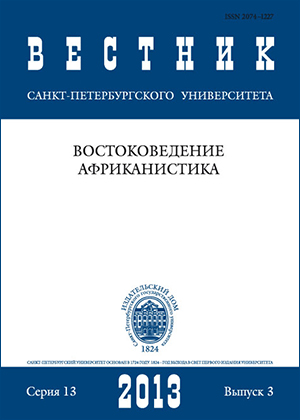Military and political expansion of Mamluk Sultanat in the Middle East: sultan Beibars (1260–1277)
Abstract
The publication is based on Arabic sources, classic and contemporary works by Russian and foreign scientists. One of the most important Arabic sources is a chronicle “Zubdat al-Fikra fi Ta’rikh al-Hijra” by Beibars al-Mansuri (d. in 1325), who was of mamluk origin. The article is concerned with a period of severe struggle between Muslims and the armies of Crusarder and Mongol. Sultan Beibars waged a successful war on two fronts. He defeated the Mongols and the Cilician kingdom of Lesser Armenia, his armies annexed Nubia, Beibars took Caesarea, Arsuf, Jaffa, captured Safad and other cities, thus, he threw the Franks back from most of their strongholds in Syria and expanded the territory of the Mamluk State. Having made Cairo the residence of Abbasid caliphs, Beibars stabilized his power and made it legitimate. To study mamluk phenomenon the article suggests a concept of geocultural space.
Keywords:
the Mamluks, sultan Beibars, Egypt, Syria, geoculture
Downloads
References
Downloads
Published
How to Cite
Issue
Section
License
Articles of "Vestnik of Saint Petersburg University. Asian and African Studies" are open access distributed under the terms of the License Agreement with Saint Petersburg State University, which permits to the authors unrestricted distribution and self-archiving free of charge.





